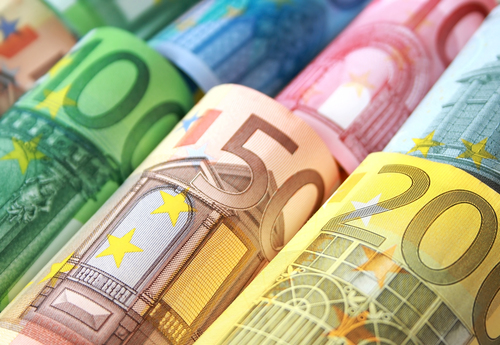Des réserves excédentaires
Dans le contexte actuel de taux négatifs, le surplus d’épargne a un coût pour les banques. En effet, chaque établissement bancaire est contraint de disposer de réserves obligatoires : ces sommes sont constituées d’une partie des dépôts de leurs clients, qu’elles doivent impérativement conserver et ne peuvent pas remettre en circulation sous forme de prêts.
Ces réserves obligatoires sont déposées par les banques sur le compte qu’elles possèdent auprès de leur banque centrale. Si elles déposent davantage que les sommes requises par la banque centrale, un taux de dépôt est appliqué sur ces réserves dites excédentaires.
Ce taux de dépôt, dans la zone euro, est négatif depuis 2014, et s’est stabilisé depuis 2019 à - 0,5 %. La Banque centrale européenne taxe donc elle-même le surplus d’épargne des établissements financiers, pour les inciter à ne pas laisser dormir l’argent et à le réinjecter dans l’économie en accordant des crédits.
C’est la taxation de ces réserves excédentaires qui pousse aujourd’hui de grandes banques américaines et des groupes bancaires européens à taxer à leur tour les dépôts de leurs clients, voire à les refuser.
Des dépôts taxés ou refusés
Le groupe bancaire allemand Commerzbank, de même que la Hamburger Sparkasse, la caisse d’épargne publique n° 1 du pays, ont fait savoir que tous les dépôts d’un montant supérieur à 50 000 euros seraient désormais taxés à 5 %.
Au Danemark, la Danske Bank, première banque du pays, taxait déjà ses clients les plus fortunés. Depuis plusieurs mois, elle abaisse progressivement les seuils : le 1er janvier 2021, elle a ramené le plafond à 250 000 couronnes, et à compter du 1er juillet, ce sont tous les dépôts supérieurs à 100 000 couronnes qui seront taxés à hauteur de 0,6 à 1 %.
Les trois plus grandes banques des États-Unis, à savoir Citigroup, JP Morgan et Bank of America, ont quant à elles demandé à leurs clients possédant les patrimoines les plus importants de ne pas faire de nouveaux dépôts, et les renvoient pour cela vers des fonds monétaires.
Les dépôts de ces 3 banques avaient connu une hausse de 92 milliards de dollars en 2019, puis atteint les 1000 milliards de dollars en 2020. Ils ont encore augmenté de 243 milliards de dollars au cours du premier trimestre 2021.
En France, durant le 1er trimestre, la hausse des dépôts a été de 14 % dans les établissements du groupe Société Générale, et de 23 % dans ceux du groupe BPCE. Toutefois, à l’heure actuelle, ni le gouverneur de la Banque de France, ni les établissements bancaires de l’hexagone n’envisagent la taxation des dépôts.
Les banques françaises sont moins impactées par le coût du surplus d’épargne, car elles bénéficient de deux dispositifs :
- les TLTRO ou opérations de refinancement à plus long terme, qui autorisent les établissements à emprunter à des taux négatifs pour accorder à leur tour des prêts aux PME.
- le tiering, qui permet de diminuer l’impact des taux négatifs. Ce dernier dispositif a été mis en place à la fin de l’année 2019 par la Banque centrale européenne.
